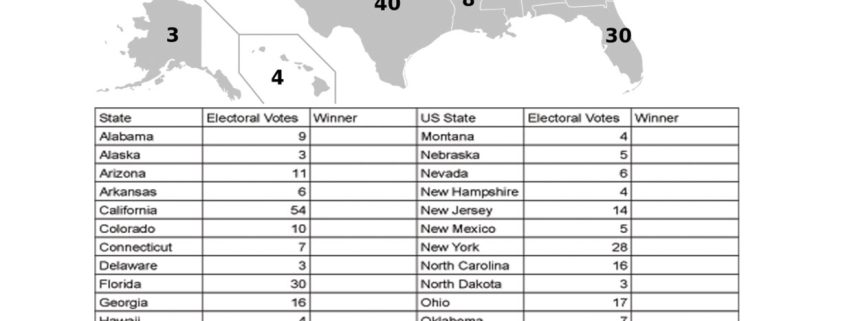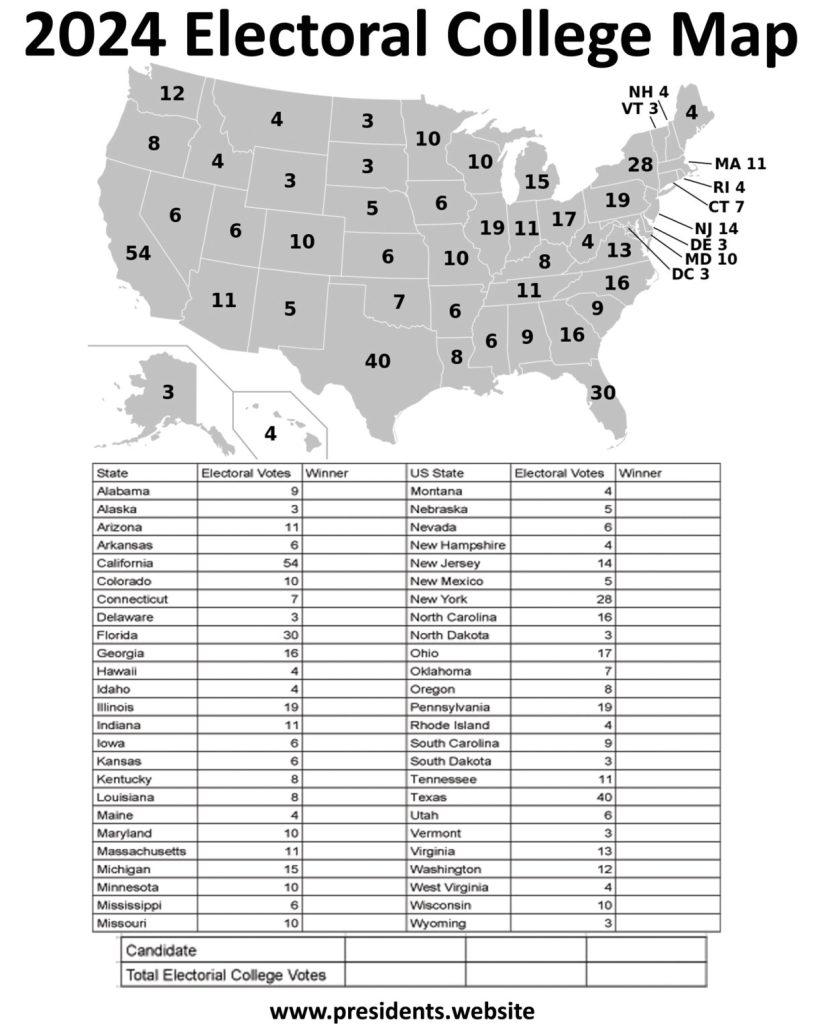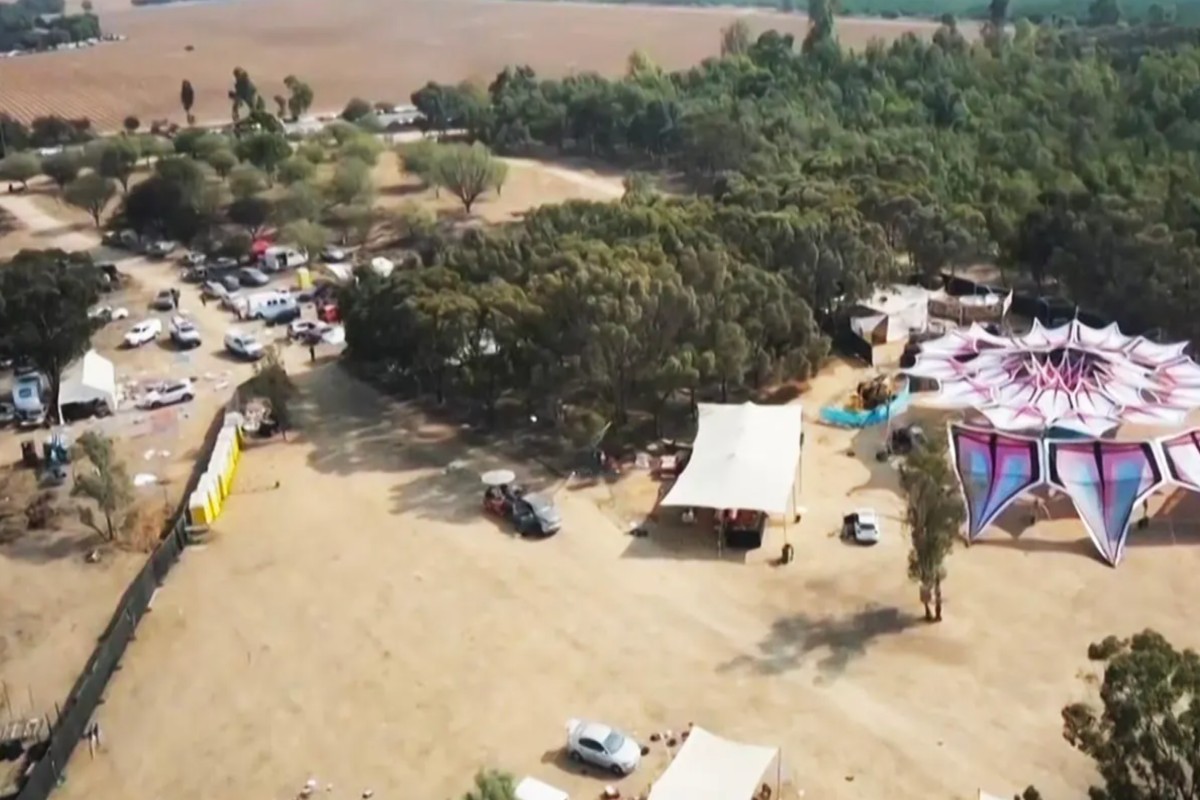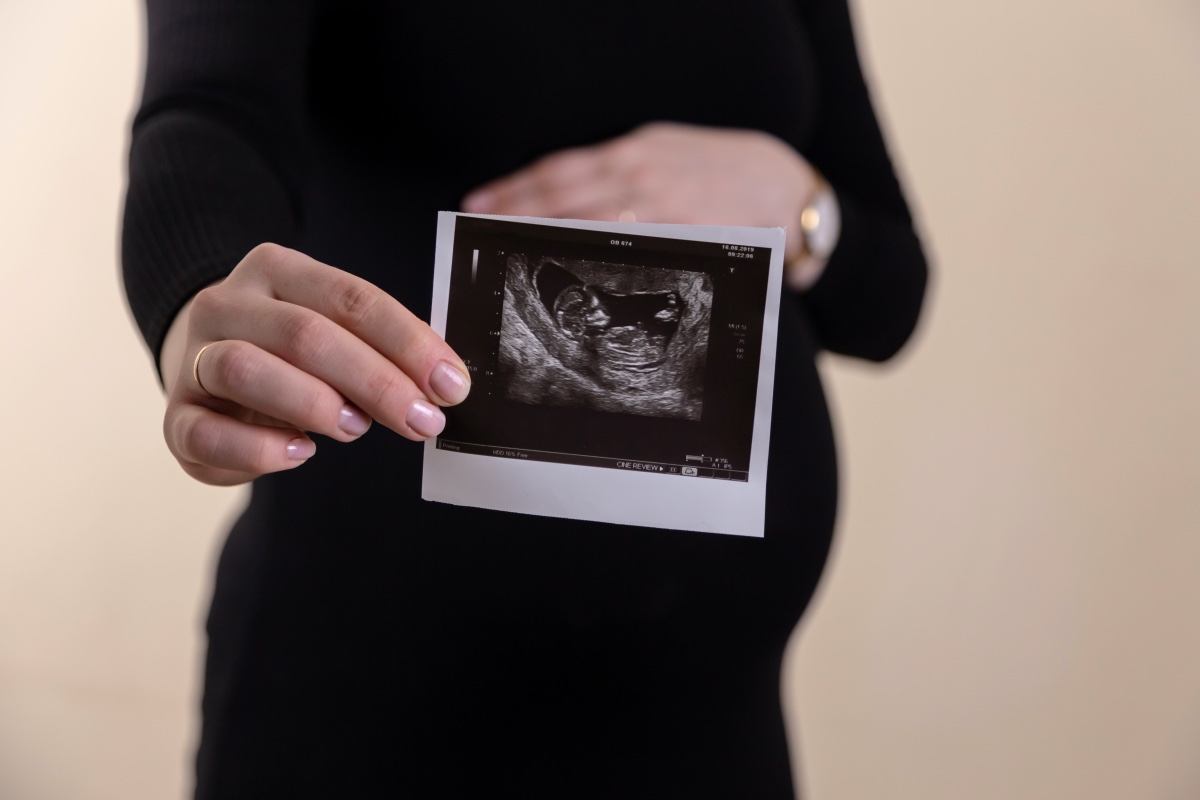The US Electoral College
By Dr.Aslam Adbullah

The Electoral College decides who becomes president and vice president of the U.S.
The Electoral College is not a physical place. It is a process that includes the:
Selection of electors
Meeting of electors who cast votes for the president and vice president
Counting of the electors’ votes by Congress
In the U.S., citizens do not elect the president or vice president; they choose them through the Electoral College.
The process of using electors comes from the Constitution. It was a compromise between a popular vote by citizens and a vote in Congress.
Each state gets as many electors as it has members of Congress (House and Senate). Including Washington, D.C.’s three electors, there are currently 538 electors in all.
Each state’s political parties choose their slate of potential electors. Who is determined to be an elector, how, and when varies by state.
After a voter casts a ballot for president, the vote goes to a statewide tally. In 48 states and Washington, D.C., the winner gets all the electoral votes for that state. Maine and Nebraska assign their electors using a proportional system.
A candidate needs the vote of at least 270 electors—more than half of all electors—to win the presidential election.
A projected winner is usually announced on election night in November after the vote. However, the Electoral College vote occurs mid-December when the electors meet in their states.
While the Constitution does not require electors to vote for the candidate chosen by their state’s popular vote, some states do. The rare elector who votes for someone else may be fined, disqualified, replaced by a substitute elector, or even prosecuted by their st
It is possible to win the Electoral College but lose the popular vote. It happened in 2016, 2000, and three times in the 1800s.
What happens if no candidate wins the majority of electoral votes?
If no candidate receives the majority of electoral votes, the vote goes to the House of Representatives. This has happened twice. The first time followed the 1800 presidential election when the House chose Thomas Jefferson as president, and the second time followed the 1824 presidential election when the House selected John Quincy Adams as president.





















2024
2,364 views
views
0
comments